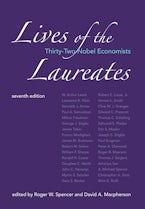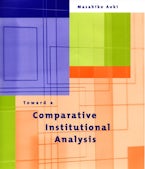An outstanding work deepening our understanding of post-communist economic transition both in Eastern Europe and East Asia. This well-written book explains why the transition has been so different in these two parts of the world. An eminent and most enlightening volume.
Anders Aslund, Senior Associate, Carnegie Endoement for International Peace; Senior Economic Advisor to the Ukrainian government
This book represents a masterly contribution to the literature on Economies in Transition. First, it brings together papers written by the most eminent analysts in the field. Second, it involves comparative analysis across europe and Asia—the crux of much of the debate in recent years. And third, it results from an extensive process of recent years. And third, it results from an extensive process of discussion between experts and policymakers, including in-country discussions. The result is a superb, accessible volume, which sheds new light on a complex process. I recommend it very highly indeed, as required reading in this field.
Alan Gelb, Staff Director, 1996 World Development Report 1996, "From Plan to Market," and Chief Economist of the Africa Region, World Bank
This is an important book. It deals with a major upcoming issue in the world, namely the framework within which the remaining communist countries will transform themselves in the direction of capitalism. There has been some literature on the lessons from Eastern Europe (though this book adds substantially) but less literature on the lessons from East Asia, and none on the comparative experience of Eastern Europe and East Asia. It therefore plugs an important hole. It will surely be widely discussed in the press and have an influence on policy makers.
Richard Laynard, Director of the Centre for Economic Performance, London School of Economics, UK
After about five years of post-communist transition in Eastern Europe there is substantial experience to compare with the developments in the Asian reforming economies. It is a fascinating dilemma:Why have the still communist-ruled, but significantly reformed China and Vietnam achieved much better economic performance than the european transition economies? This volume is among the first attempts to contrast these experiences in several important policy areas, that makes it an extremely valuable excercise. The main merits of the volume are the empirical richness of the country studies and the provocative policy conclusions of the comparative papers. This book will be very interesting for many economists, analysts, and policy makers.
Lazlo Urban, Chief Economist, Hungarian Credit Bank
The Woo, Parker, and Sachs volume presents case studies of systemic transition in seven nations and, in addition, seven essays comparing various facets of systemic change in different nations. These esseys allow us to assess carefully the manner in which initial conditions have influenced the different paths of transition as well as the impact of quite different policy strategies on economic performance. Both specialists and general readers can gain much from this book.
Frederic L. Pryor, Professor of Economics, Swarthmore College
For years, economists have been wrestling with the issues raised by thecontrast between the transition path of China and those of Eastern Europeand the FSU. Now the papers collected in this volume edited by Wing Woo, Stephen Parker, and Jeff Sachs, tell us in what ways East Asia is different—and what lessons we should draw from both sets of historicaltransitions.
Stanley Fischer, First Deputy Managing Director,International Monetary Fund
The book represents comprehensive and impressive study into east Europeanand Asian developments. It is free from any ideological grounds and showsthe authors' deep professional approach. This work should be recommendedto both students and professionals dealing with the analysis of theeconomies in transition.
Yegor Gaidar, Director, Institute for Economy in Transition
The volume is rich in information and factual insights, and presents manyinspiring and original, thought-provoking ideas, supported by sharpanalysis. The authors, among them world-famous leading reformers offerbroad generalizations of the experiences of several European and Asiancountries. This is mandatory reading for everyone who wants to understandpostsocialist transformation.
Janos Kornai, Allie S. Freed Professor of Economics,Harvard University and Permanent Fellow, Collegium Budapest












